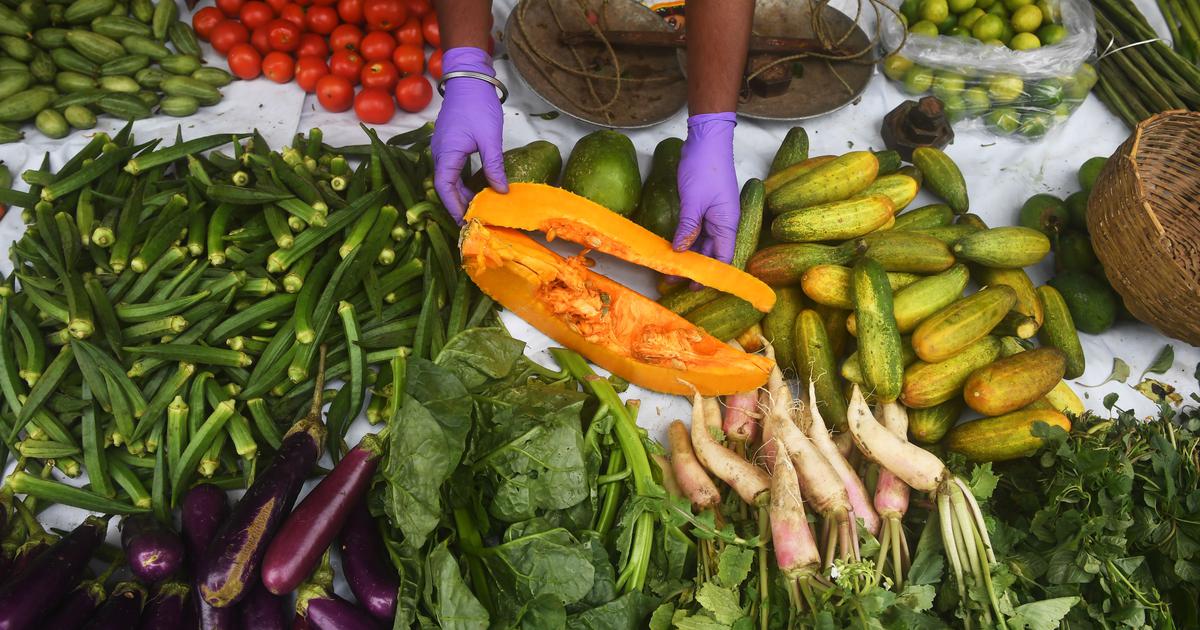July retail inflation eases to 5.59% from 6.26% in June
The inflation in food prices dropped to 3.96% as compared to last month’s 5.15%.

The retail inflation in July eased to 5.59% from 6.26% in June, government data showed on Thursday. The data, which is an indicator of price rise, was within the range of the Reserve Bank of India’s comfort zone of 2% to 6% target, economists told Reuters.
The inflation in food prices dropped to 3.96% as compared to last month’s 5.15%, according to data released by the National Statistical Office. Food prices make up nearly half of the inflation basket and Thursday’s drop was attributed to this.
The prices of cereals dropped by 1.75% and that of vegetables fell by 7.75%. However, the cost of meat and fish rose by 8.33% and that of fruits increased by 8.91%. Eggs too were costlier by 20.82%. The prices of oils and fats climbed by 32.53% and the cost of pulses and related products increased by 9.04%.
The hike in the rates of fuel and light in July was evident from the data as the prices increased by 12.38% as compared to the same period last year. However, the fuel and light prices dropped on a monthly basis as the inflation in June was 12.68%.
On August 5, the Reserve Bank of India had raised its inflation projection for the fiscal year 2021-’22 to 5.7% compared to 5.1% in the last announcement.
Industrial production rate rise by 13.6%
The industrial production rate for June rose by 13.6% as compared to last year, another set of data released by the National Statistical Office showed.
The data showed that the output for the manufacturing sector, which accounts for more than three-fourths of the entire index, also increased by 13%. The mining sector’s output grew by 23.1% and that of electricity rose by 8.3%.
There was a decline in the manufacturing output of pharmaceuticals, medicinal chemical and botanical products by 5%. The manufacturing output for tobacco products also saw a steep decline of 16.9%.
In June last year, the industrial production rate had contracted 16.6%. The contraction was the result of a partial lockdown in the country imposed to rein in the coronavirus pandemic.
During the April-June quarter this year, the production rate grew by 45% against the contraction of 35.6% in the same period in 2020.









